
Starting June 1st, 2023 Our warehouse fee will be $0.65/cubic foot per month
In effort to lower the warehouse storage fee during inflation, we have went narrow aisle racking.This construction took us four months but the project is finally completed. With narrow aisle racking, we are able to drop storage by 24%.We as partners will go through this inflation together.
04/21/2024
The transportation of products and services across international borders is greatly facilitated by the logistics sector, which serves as the foundation of global trade. However, in the quick-paced logistics industry, where productivity and efficiency are crucial, employee mental health frequently takes a backseat. In this essay, we will examine the complex relationships between mental health and the logistics sector, as well as its root causes and potential remedies, all the while highlighting the vital importance of mental health education.
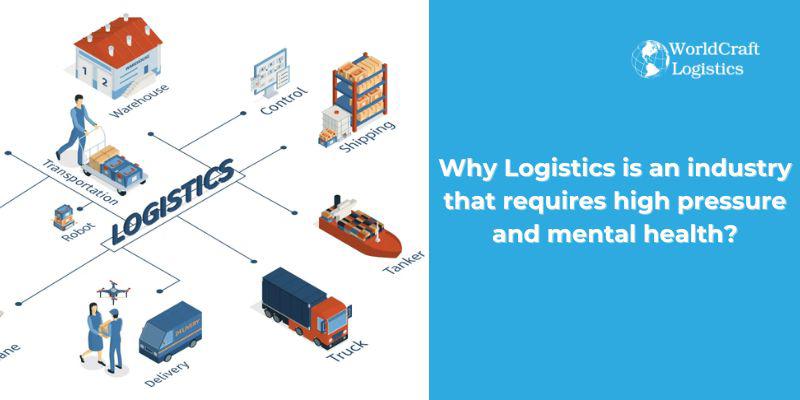
Work-life balance and mental health are routinely neglected in the unrelenting, high-pressure climate of the logistics sector. Professionals in this sector are frequently faced with short deadlines, lengthy workdays, and the ongoing need to be flexible in the face of new obstacles. These challenging circumstances are the perfect environment for bad health problems:
✍️ The logistics sector puts a lot of pressure on workers to achieve strict deadlines to ensure the smooth movement of goods in its persistent pursuit of efficiency. Anxiety, sadness, and burnout might develop as a result of this ongoing pressure.
✍️ A sizable part of logistics workers operate in isolated or lonely environments, which frequently causes emotions of loneliness and isolation. An increased risk of mental health illnesses is strongly correlated with these emotional struggles.
✍️ Working irregular hours, including night shifts, throw off circadian rhythms and lead to sleep difficulties that aggravate pre-existing mental health conditions.
✍️ Logistics duties, such as loading and unloading large freight, can be physically taxing, which can have a negative effect on mental health.
Where are the job opportunities for you? How can we capture trends and survive in the logistics and supply chain industry? Read now the analysis of EXPLOSION of employment trends in the supply chain 2023 - 2024 to go deeper and evaluate your own level of experience.
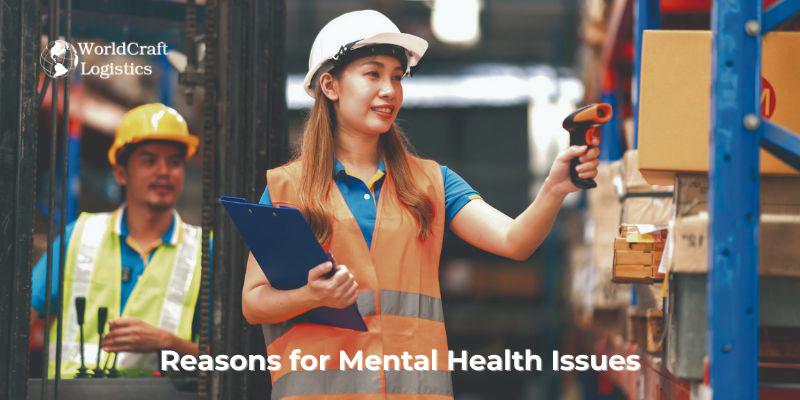
The difficulties with mental health that those in the logistics business confront are caused by a number of factors:
Due to a widespread lack of awareness and the persistent stigma surrounding these issues, mental health difficulties frequently go unnoticed in the logistics industry. It's crucial to remove these obstacles and promote open discussions, supported by mental health education, in order to properly handle mental health in logistics.
Because of the unrelenting nature of logistics, there is frequently little time for self-care and leisure.
The constantly changing logistics sector, which is characterized by the introduction of automation and economic ups and downs, usually results in employment insecurity, which in turn raises stress levels among employees.
Logistics workers frequently do not have simple access to mental health services, which prevents them from receiving the crucial treatment they need to deal with their mental health issues.
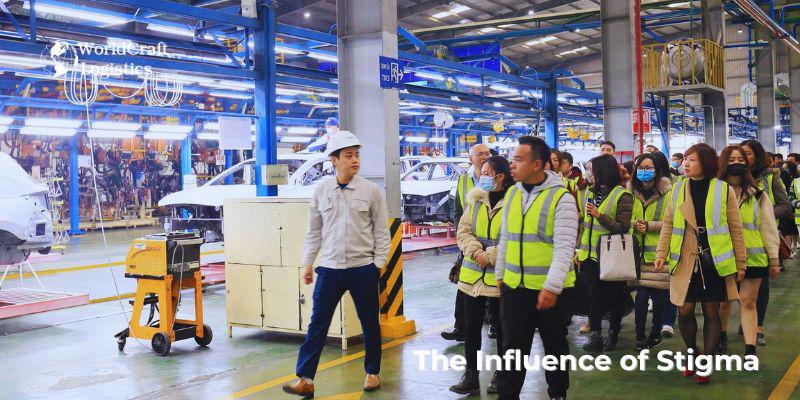
The stigma associated with mental illness refers to the unfavorable assumptions, attitudes, and preconceptions that people have about those who struggle with their mental health. It spreads a long, gloomy shadow over people, making it challenging for them to ask for assistance or to be honest about their struggles.
📌 Stigma Has Its Roots in Myths: Many times, stigma has its roots in myths concerning mental health issues. The idea that people who struggle with mental health issues are weak, harmful, or somehow accountable for their disorders is perpetuated by myths and prejudices.
📌 Silencing Voices: People who suffer in silence and refuse to ask for assistance or talk about their experiences with loved ones may be doing so out of a fear of being branded. These diseases might worsen in silence, making recovery more difficult.
📌 Treatment Obstacles: The stigma surrounding mental illness makes it difficult for people to seek treatment. People may put off getting help because they are afraid of being judged or treated unfairly, or because they think they can handle their problems on their own.
📌 Impacts on Society: The stigma associated with mental health has negative effects on both individuals and society as a whole. It adds to prejudice, a lack of resources for mental health care, and a general ignorance about mental health issues.
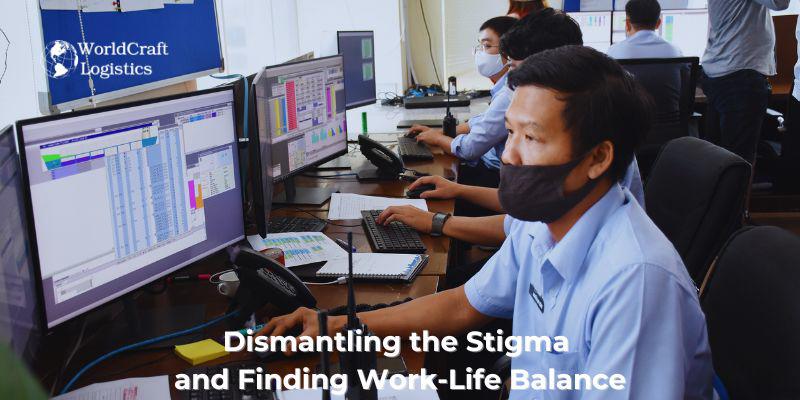
In addition to being morally required, eliminating the stigma associated with mental health is a vital first step in enhancing both the personal and societal wellbeing of those involved.
Promoting open discussions about mental health might help people feel comfortable sharing their experiences. Personal accounts and candid conversations help humanize issues with mental health and dispel prejudices.
Language matters. Reducing stigma can be achieved in large part by refraining from using pejorative terminology or jokes about mental health and instead using polite and sympathetic language.
It's crucial to demonstrate empathy and compassion for people who are struggling with mental health issues. An understanding and accepting attitude can go a long way in making others feel understood and accepted.
The media significantly influences how the public perceives issues. Promoting responsible and truthful representations of mental health in media can aid in the fight against stigma.
Reducing the hurdles that stigmatization causes by making mental health care more inexpensive and accessible. People are more inclined to seek assistance when they can easily receive treatment without worrying about being subjected to discrimination.
Advocacy initiatives can result in a change in policy and more money being allocated to mental health services. These adjustments can foster a more inclusive society and help close access to care gaps.
Employers should start awareness campaigns to inform staff members about the value of mental health. Workshops, seminars, and educational materials on identifying warning signs of mental health problems and seeking treatment may be included in these programs, which are facilitated by mental health education.

Training in mental health first aid gives staff members the knowledge and abilities to offer early help to coworkers going through mental health difficulties. This helps to promote a work environment that prioritizes mental health and mental health awareness.
Offering flexible working hours and shift schedules enables logistics professionals to better balance their work and personal lives, thereby lowering the stress brought on by strict schedules and promoting mental health awareness.
Remote Work possibilities: In some circumstances, investigating remote work possibilities can aid in the pursuit of work-life balance by allowing employees to more successfully juggle their job and personal obligations while maintaining an emphasis on mental health education.
Employee Assistance Programs (EAPs): EAPs are crucial for promoting mental health in logistics because they provide private counseling services. Access to EAPs as a benefit reinforces the company's dedication to employee wellbeing, mental health, and mental health awareness.
Innovative businesses are now providing on-site mental health services, such as counseling or therapy sessions, making it easier for staff to get treatment while fostering work-life balance and mental health awareness.
Ergonomic Training: To promote both physical and mental health, ergonomic training should be invested in to lessen physical strain and lower the likelihood of stress-related injuries. This emphasizes the significance of mental health education.
Work-life balance, employee well-being, and mental health awareness are all promoted by wellness programs, which also include fitness, nutrition, and stress management initiatives. These programs play a key role in creating a workplace environment that values these factors.
ERGs (Employee Resource Groups): By establishing ERGs for mental health, organizations may foster a feeling of community, offer peer support, and plan events and activities that highlight the value of promoting mental health awareness and a healthy work-life balance.
Mentorship and Buddy Systems: In the workplace, mentoring and buddy systems make sure that staff members have someone to turn to for advice and emotional support, highlighting the need of work-life balance and mental health awareness.
Supervisor Training: With a firm foundation in mental health education, training supervisors to spot symptoms of mental health distress and encouraging open conversations during regular check-ins are essential for fostering both mental health and work-life balance.
Implementing anonymous reporting systems for mental health issues gives staff members a secure forum to discuss their difficulties while underlining the value of supporting both mental health and work-life balance, strengthened by mental health education.
Offering stress-reduction programs, such mindfulness meditation and stress management classes, gives employees practical coping mechanisms and emphasizes the value of a healthy work-life balance, which is further supported by mental health education.
Workplace Design: Building a supportive workplace culture that prioritizes work-life balance and mental health education requires designing an environment that reduces pressures, incorporates natural elements, and fosters mental well-being.
Articles related to the profession:
Conclusion:
Finally, a comprehensive, multi-pronged approach is required to address mental health in the logistics sector while also highlighting the importance of work-life balance. Employers can foster a culture where mental health is recognized, supported, and prioritized along with establishing a healthy work-life balance by incorporating these techniques into the logistics industry's culture, all of which are backed by comprehensive mental health education. In the end, this strategy improves not only the productivity and sustainability of the sector but also the mental health of workers, constituting a crucial step toward a better future for logistics professionals.
SEO
Digital Marketing/SEO Specialist
Simon Mang is an SEO and Digital Marketing expert at Wordcraft Logistics. With many years of experience in the field of digital marketing, he has shaped and built strategies to effectively promote Wordcraft Logistics' online presence. With a deep understanding of the logistics industry, I have shared more than 500 specialized articles on many different topics.

Labor sources and jobs
01/22/2024

Labor sources and jobs
12/28/2023
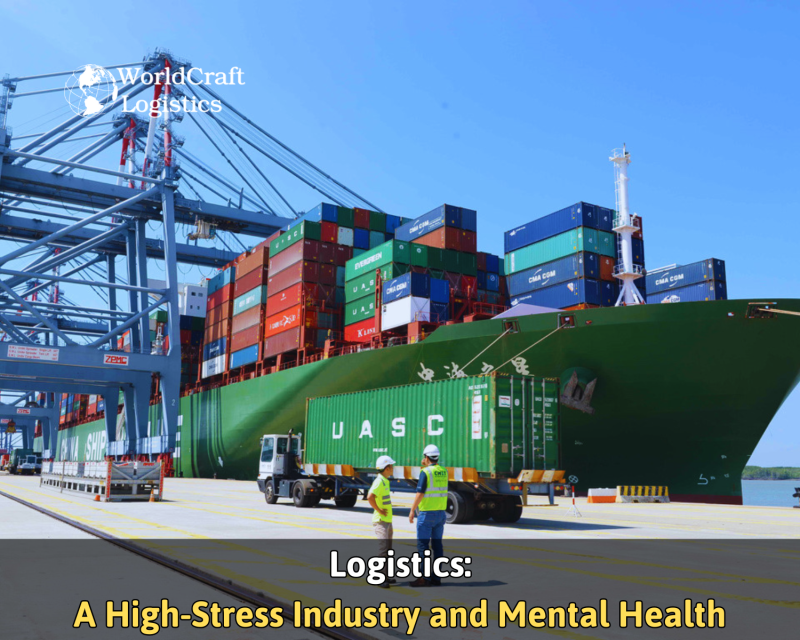
Labor sources and jobs
04/21/2024

Labor sources and jobs
10/19/2023

Labor sources and jobs
02/07/2023